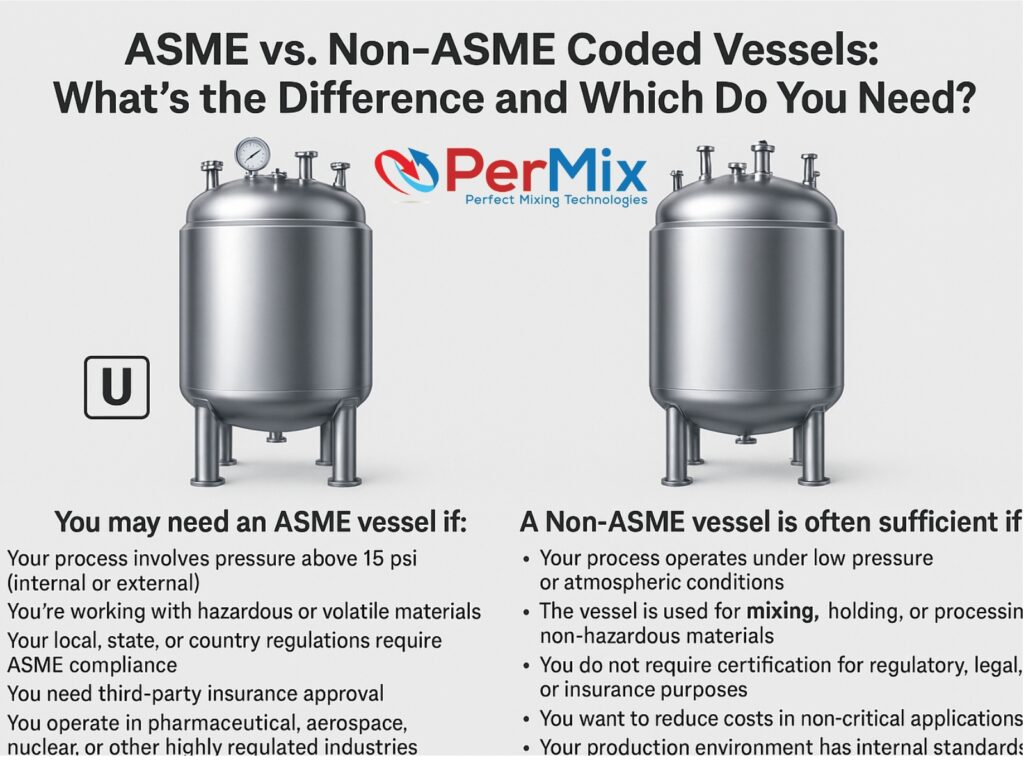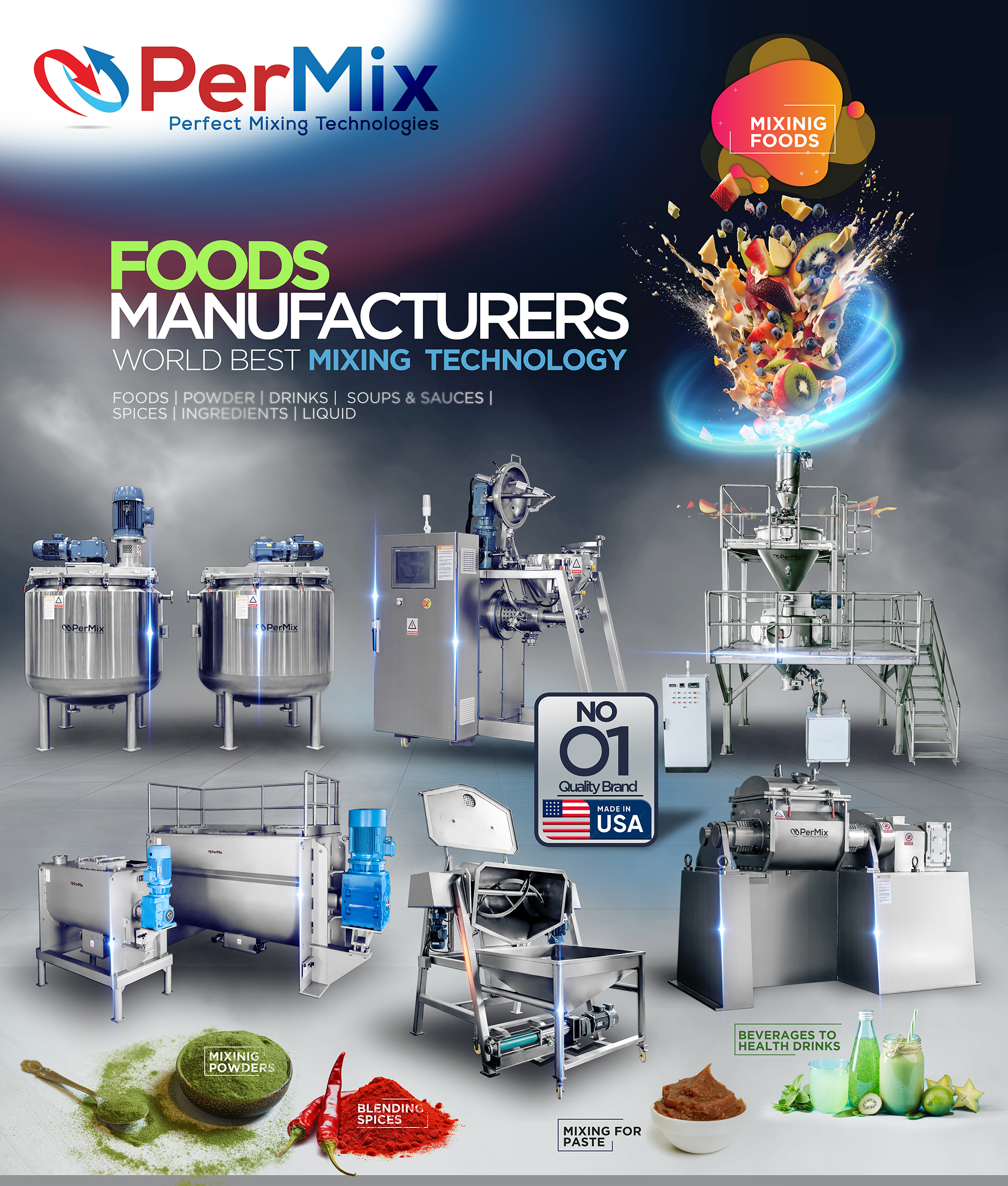Designed for performance, built for reliability — our Cook-Chill kettles deliver efficiency at every stage. Connect with us to learn more!
ASME vs. Non-ASME Vessels: What’s the Difference and Which Do You Need?
ASME vs. Non-ASME Vessels: What’s the Difference and Which Do You Need?
By PerMix | Engineered Mixing & Processing Solutions
At PerMix, we proudly manufacture both ASME and Non-ASME coded vessels to serve a wide range of industries and applications. Whether you’re in food processing, pharmaceuticals, chemicals, or cosmetics, understanding the difference between these two types of pressure-rated vessels—and knowing when ASME is required—can help you make the right decision for your production process.
What Is an ASME Vessel?
An ASME vessel is a tank or pressure vessel built in accordance with the American Society of Mechanical Engineers (ASME) Boiler and Pressure Vessel Code (BPVC). This code sets stringent standards for design, fabrication, inspection, testing, and documentation. Vessels that are ASME certified carry a U-stamp, indicating they have been built to meet these high standards.
What Is a Non-ASME Vessel?
A Non-ASME vessel is a pressure or storage vessel that does not carry the ASME U-stamp. These vessels may still be built to high quality standards but are typically used in applications where low pressure, no pressure, or non-hazardous processes are involved, and the certification is not legally required.
Who Needs an ASME-Coded Vessel?
You may need an ASME vessel if:
- Your process involves pressure above 15 psi (internal or external)
- You’re working with hazardous or volatile materials
- Your local, state, or country regulations require ASME compliance
- You need third-party insurance approval
- You operate in pharmaceutical, aerospace, nuclear, or other highly regulated industries
- You plan to resell the equipment or install it in facilities where ASME compliance is mandatory
Who Does Not Need an ASME Vessel?
A Non-ASME vessel is often sufficient if:
- Your process operates under low pressure or atmospheric conditions
- The vessel is used for mixing, holding, or processing non-hazardous materials
- You do not require certification for regulatory, legal, or insurance purposes
- You want to reduce costs in non-critical applications
- Your production environment has internal standards that do not require ASME
Is ASME Required?
Not always. ASME certification is only required when mandated by law, insurance companies, or customer requirements. Many food and cosmetic manufacturers, for example, do not need ASME vessels because their processes involve low pressures and non-hazardous materials. However, in pharmaceutical or chemical processing environments, the added safety, compliance, and peace of mind offered by ASME certification can be critical.
Why Choose PerMix?
Whether you need an ASME-coded tank or a cost-effective Non-ASME vessel, PerMix has you covered. Our engineering team helps you determine the best solution based on your process requirements, pressure ratings, and budget. All of our vessels—coded or not—are built with precision, performance, and durability in mind.
With PerMix, you get:
- Custom-engineered tanks & vessels
- ASME U-stamped options with full documentation
- Heating & cooling jackets, vacuum & pressure ratings
- Material options including 304/316 stainless steel, Hastelloy, titanium, and more
- Sanitary designs for food, pharma, and cosmetics
- Competitive lead times & global support
Conclusion: One Size Doesn’t Fit All
Choosing between an ASME and Non-ASME vessel depends entirely on your process requirements, regulatory needs, and budget. PerMix offers both—so you get the right vessel, at the right price, for the right job.
Have questions or want to discuss your application? Contact our engineering team today to find the perfect solution for your operation.

